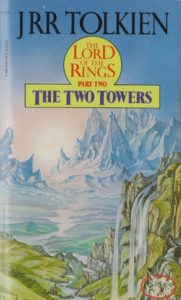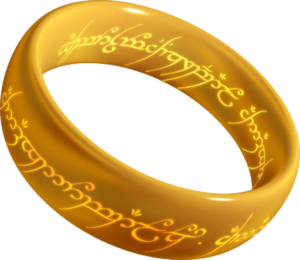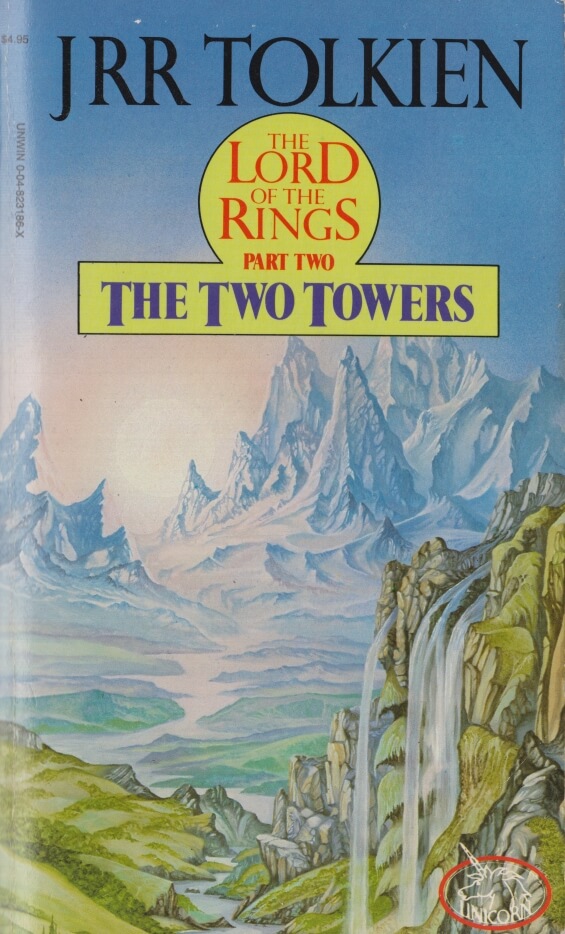Realism And Twenty-first Century Storytelling
From the Writers’ Toolbox
As I’ve watched the five different Star Trek shows, still running six days a week on H&I, I’ve noticed something important about storytelling. In the various shows, created over a half century, there are some notable differences. Of course the original, produced before technological advances that make speculative elements come alive, felt quite artificial at times. I mean, the women wore those ridiculous miniskirts and nearly every episode had the crew jostled about and falling against walls and consoles. Not to mention that the poor red shirts were doomed to destruction and that Captain Kirk, in all likelihood, would win some female’s heart before the end of each episode.
What I’ve found by watching the shows night after night is that the evolution of storytelling mirrors that of movies. Some of the earlier shows actually seem a little slow. There’s more dialogue and not as many things blowing up, not as many people falling to phaser blasts. But in the last show, Enterprise, the story line is less thoughtful and more salacious, more violent. More action-packed, too.
Storytelling has changed.
We often talk about the need for realism in fiction, particularly in Christian fiction, but when we cite the movies we love, there’s little that is true to reality beyond the externals.
 Of course, the externals are important. Who would want to replace the computer enhanced Aslan for an actor dressed in a lion costume? We want our Aslan to appear on the screen as a real lion.
Of course, the externals are important. Who would want to replace the computer enhanced Aslan for an actor dressed in a lion costume? We want our Aslan to appear on the screen as a real lion.
The desire and push for realism in our stories has given impetus to those who believe Christian fiction should include sex, profanity, and vulgarity. After all, those are real.
But where is spiritual reality?
I think there’s something else not particularly real in twenty-first century stories, no matter how real the computer generated characters might appear. We could chalk this up to “that’s just movies” if it weren’t for the fact that screen writing is beginning to dominate the way we write novels, too.
I’ll characterize this unrealistic phenomenon as too much conflict. The Lord Of The Rings illustrates the point.
 Some time ago I watched the last part of Peter Jackson’s The Two Towers on TV shortly after re-reading the Lord Of The Rings trilogy. The main thing I noticed was conflict in the movie where none existed in the book.
Some time ago I watched the last part of Peter Jackson’s The Two Towers on TV shortly after re-reading the Lord Of The Rings trilogy. The main thing I noticed was conflict in the movie where none existed in the book.
For example, in Tolkien’s original once Gandalf had freed Theodin, the king of Rohan, from the influence of Wormtongue, he quickly became his adviser. Théoden did what Gandalf told him to do: trusted Éomer as his new right hand, sent the women and children away to a place of protection (not Helms Deep), prepared his army to march on Isengard, sent out word to gather troops to support Gondor against Mordor. In the film version, however, Théoden fought Gandalf at every turn. He was nearly as depressed and suicidal as Denethor the Gondor steward.
There was also enhanced conflict between Arwen and her father Elrond about her staying in Middle Earth for Aragon. She finally decided to leave–an incident that did not happen in the book.
 Another “it did not happen in the book” example also involved Aragon. On the way to Helms Deep (rather than to Isengard, as the book had it), the people of Rohan were attacked by Uruk-hai and Wargs. In the battle, Aragon was dragged over a cliff and fell to the river. His companions presumed him to be dead.
Another “it did not happen in the book” example also involved Aragon. On the way to Helms Deep (rather than to Isengard, as the book had it), the people of Rohan were attacked by Uruk-hai and Wargs. In the battle, Aragon was dragged over a cliff and fell to the river. His companions presumed him to be dead.
Then, too, Treebeard and the Ents decided they would not help in the war against Saruman. Merry and Pipin tried to talk him into it, but he refused, only promising to take them out of the forest at whatever point they wished. On the way, they came to a place where Saruman’s forces had destroyed the trees, and the Ents then arose and fought. The motivation in the book is the same, but the conflict between the hobbits and the Ents never existed.
In the segments concerning Frodo, there were more of these manufactured conflicts. Frodo and Sam argued about the effect the ring had and about their disparate treatment of Gollum. Then too, Faramir insisted on taking Sam, Frodo, and Gollum to Gondor with the intent to use the ring (which they spoke of openly in front of all Faramir’s men) in the battle against Mordor. When they reached Osgiliath, they were attacked by one of the Nazgul. Under the influence of its presence, Frodo acted as if he’d been possessed and nearly put on the ring. Faithful Sam tackled him to stop him and they wrestled, with Frodo pulling his sword on Sam. None of this happened in the book.
As I thought about these differences, it seems to me that the movie was faithfully following the dictates of writing instructors who tell writers to make life hard for their characters and when it’s as bad as it can get, make it worse.
But is that reality?
Do friends always turn against one another? Does the hero always fall to his apparent death? Do the once mighty always succumb to discouragement and despair? Does doubt and fear always push loved ones to leave?
The answer is, no.
Tolkien got it right in his version of The Lord of the Rings—he told a realistic story. Borimir succumbed to the power of the ring, but Faramir did not. Denethor became suicidal, but Théoden did not. Gandalf fell to his apparent death, but Aragon did not.
 In showing the strength of Faramir, the healing of Théoden, the prowess of Aragon, Tolkien enhanced Borimir’s failure, Denethor’s selfish choice, and Gandalf’s sacrifice. In other words, by not taking every character to the brink before leading them back, he magnified each case in which a character was taken to the brink.
In showing the strength of Faramir, the healing of Théoden, the prowess of Aragon, Tolkien enhanced Borimir’s failure, Denethor’s selfish choice, and Gandalf’s sacrifice. In other words, by not taking every character to the brink before leading them back, he magnified each case in which a character was taken to the brink.
If all characters are victims of disaster, I suggest readers or viewers stop caring and start looking for the “out.” Will the character die and come back? Have a narrow escape? Have a death that only looks like death? In truth, all the arguing and betrayal and refusal becomes—predictable and boring and unrealistic. Soon the characters seem more like caricatures because none acts with nobility or courage or hope. All display their flawed selves with so little inner struggle. And this, we’ve come to believe, is realistic.
Perhaps this twenty-first century version of realism is another way in which we are not addressing spiritual issues realistically. We are, after all, made in God’s image. We have within us a moral sense of right and wrong. We also have a sin nature. In essence, we are divided at our core.
We experience the truth of Romans 7 day in and day out, doing the thing we hate and neglecting the thing we know we should do. We struggle in the inner person. But Romans 8 follows, too. We revel in the freedom from the law of sin and death, we experience God’s sovereign purpose to work all things for our good, we enjoy His nothing-can-separate-us love. In short, reality is a mixed bag along the journey. It’s not all bad until the miraculously impossible reversal.
In story writing, I believe in conflict, I really do, though I believe in tension more. I wonder if twenty-first century authors aren’t needlessly creating artificial, big-bang conflict when inner-struggle tension, more true to life, actually would make for a better story. Tolkien’s work convinces me that more external conflict isn’t particularly realistic nor is it always the best.
This article is an edited version of one posted in 2016, and the greater part of it is an edited version of one that first appeared here in January 2013.










































People mean various things when they ask for ‘realism’, though. In many cases, they actually just want something that feels plausible for the story world in question. Do events and circumstances ring true for the setting and characters the author put forth?
To some extent, knowing the way things are in real life can ruin a story and make it annoying to read, rather than entertaining. A kid, for instance, might enjoy reading about dogs that have retractable claws. But then someone might point out that in real life dogs don’t have retractable claws and therefore depicting dogs with retractable claws is ridiculous. That little fact of reality might then make the kid roll his eyes at any story that has such obvious errors.
But let’s say a sci fi author wanted to write a realistic story, but liked the idea of dogs having sharp claws. So the sci fi author might be like ‘in my space universe, dogs were genetically engineered to have sharp retractable claws’
Suddenly, there’s a plausible in story reason for dogs to have retractable claws. So the kid that formerly rejected dogs with retractible claws stories might love the tale written by that sci fi author, because the sci fi author made up an explanation that at least FELT realistic.
I haven’t read the LoTR books, but the movies seemed alright to me. But we have to remember that those are two different mediums. Maybe the movies could have dealt with less conflict, assuming the filmmakers did a good enough job with writing and scene setting. But they might have still had to add SOME extra conflicts that weren’t in the book.
I agree that people aren’t literally going to have problems at every turn and writers go overboard with that. But if writers don’t show conflict, they should often be willing to show complexity. The two characters in question are going through life and death situations for years on end and somehow never disagree or fight? Ok, great. Give an extremely detailed glimpse into their heads to show why that’s the case. Otherwise the characters can come off as gullible or shallow. The story they are in, or the ideal they represent might be wonderful or deep, but that doesn’t automatically make the characters themselves deep.
Uh-oh, I’m falling off topic, but I find it fascinating how form follows function in biology.
If dogs were to have sharp, retractable claws, it would probably mean that they’d turned into ambush predators, like most cats, rather than pursuit predators. Wolves (and cheetahs) use their claws for traction while running, which dulls them.
Domestic cats generally don’t have super sharp back claws because those ones are used for traction rather than grabbing, unless you are my Hauspanzer, who chews and picks at both front and back claws for optimum couch and/or human gouging. (I have a healing cut on my belly from when I picked her up and she stabbed through my shirt. We had a clipping session afterward.)
Yep, which is why such little details matter and why those details can drive people crazy.
And even if dogs were genetically engineered to have retractable claws, getting them to use them in a way that’s desirable would probably take a lot of modification to the parts of their DNA that have to do with behavior. Or they’d have to undergo a lot of training. I mean, some dogs already do try to paw at people and grab at things, but weaponizing such tendencies after giving them sharp claws would be more complicated. But stories that actually think through stuff like that and explore all those challenges can be pretty interesting.
I, too, have been bingeing the Star Trek series on Netflix, and what I noticed is the greater realism in how people speak. Of course, with the intro series, they had to establish a lot with exposition dumping all the backstory at us, but they also felt the need to explain more of the science that ran the plot. Of course, a lot of the plots now have more pseudoscience that only needs some argle-bargle about reversing the polarity, so less is definitely more in that case.
But the amounts of stupid, useless conflict is definitely too many.
I like there being stories with varying levels of optimism, realism, darkness, etc. No one story is going to be completely realistic, but they show parts or aspects of reality. A super grim dark story might look at some of the most horrific parts of history and show a fantasy version of those. Or they might just point out some of the deep psychological reasons humanity is tainted. Maybe those things are over exaggerated so the audience can see and criticize them, and maybe many aspects of the story world aren’t true to real life, but it’s the same with bright hopeful stories. Regardless of whether a story is dark or light, everything in it needs to be taken with a grain of salt, but it may still have valuable lessons to teach. And sometimes darker tales can reveal a lot about people, even outside the story itself.
Death Note mentions on many occasions that the main character, Light, gained a rather large following of people that believed in his idea of killing all criminals so only good people remained. If you look at enough discussions of this show, though, there are actually a lot of people that agree with his viewpoint. In fact, I heard that before writing the Death Note manga, the authors wrote a short preview story discussing the premise and asked readers to put forth their opinion on the issue. So the reader responses may very well have shaped the writing of Death Note, in terms of the authors having lots of people’s reactions to use as a reference.
So, like, with conflict, writers should probably think long and hard about which conflicts are actually necessary, and be brainstorming ways to add complexity and interesting things without conflict and violence. I write a lot of tragic stuff, and one thing I’ve learned is that it’s important to give characters things they genuinely love and enjoy, and use those scenes to establish character relationships and future plot points. Those scenes won’t feel boring if they successfully fulfill multiple purposes and move the plot along. (Maybe the character’s lives can be unraveling bit by bit, and the readers can tell, even though the characters can’t just yet)And those scenes actually make the darker sadder plot points matter because by then, whenever the character loses something they love, the audience genuinely feels that loss too.
Thought provoking. Thank you!